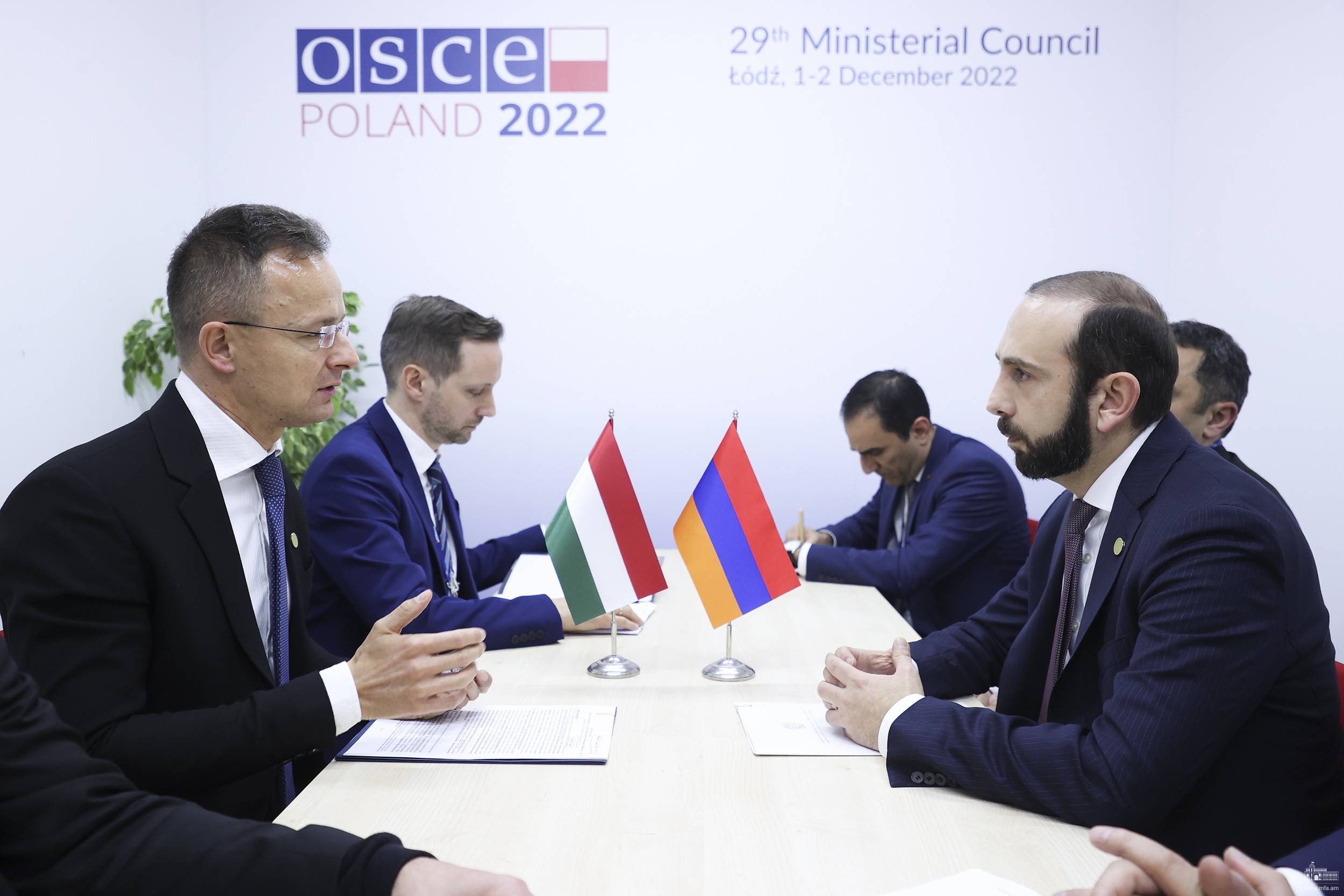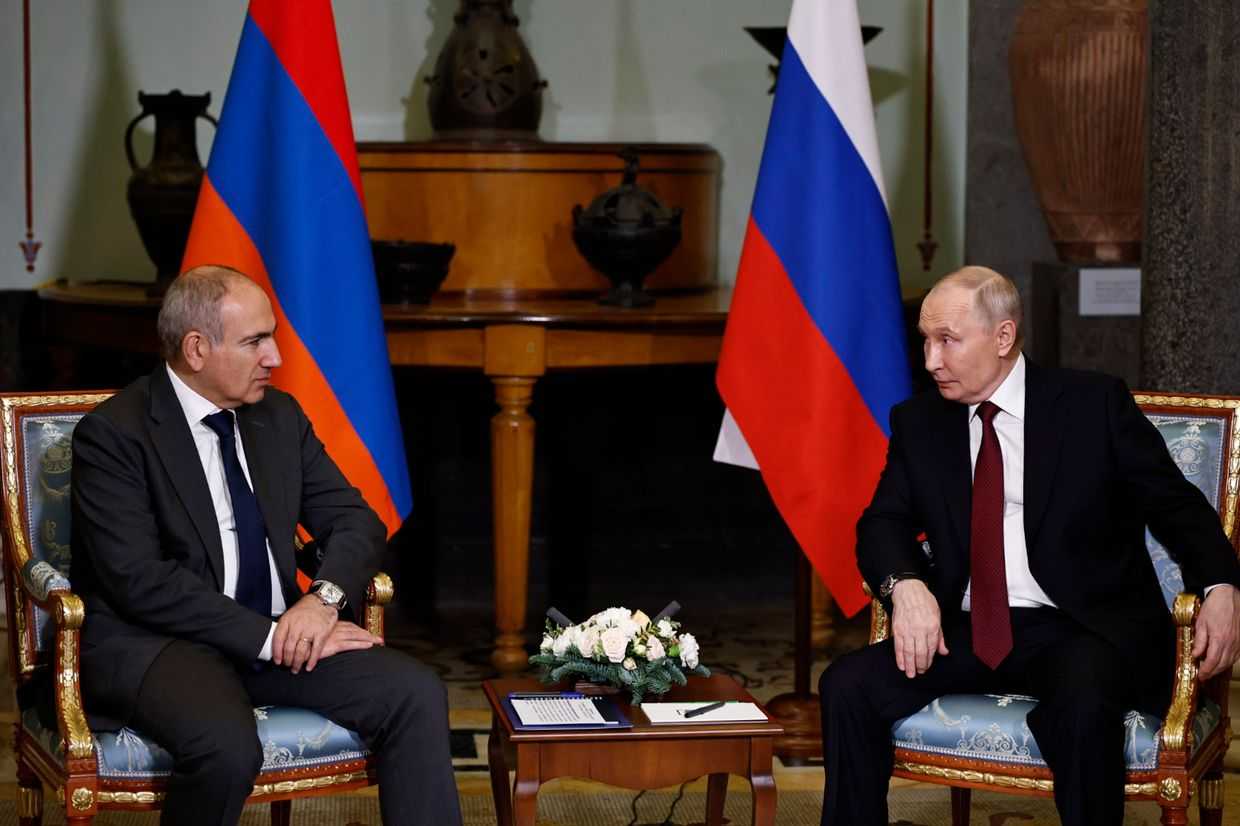
Armenia and Hungary have agreed to restore diplomatic relations, having severed them in 2012 following the release of axe murderer Ramil Safarov.
Armenian and Hungarian foreign ministers Ararat Mirzoyan and Péter Szijjártó reached the agreement at a meeting on Thursday, on the sidelines of the OSCE Council of Foreign Ministers in Poland.
Armenia’s Ministry of Foreign Affairs announced that they had ‘agreed to restore full diplomatic relations, expressing their intention to open a new chapter in their relations based on mutual trust and respect towards international law’.
Diplomatic relations were severed in 2012, after an Azerbaijani soldier who had brutally murdered an Armenian soldier in Hungary’s capital city, Budapest, was released to Azerbaijani custody.
Ramil Safarov, an Azerbaijani lieutenant, murdered Gurgen Margaryan, an Armenian lieutenant, with an axe while Margaryan was sleeping. Both were in Budapest to take part in a NATO Partnership for Peace programme.
Safarov was sentenced to life in prison in April 2006 by a Hungarian court, but in August 2012, Hungary agreed to transfer Safarov to serve the remainder of his sentence in Azerbaijan. Safarov was instead issued a pardon by Azerbaijani President Ilham Aliyev on his return.
Armenia consequently severed diplomatic relations with Hungary on 31 August 2012.
[Read on OC Media: European Court rules against Azerbaijan but clears Hungary in axe-murder case]
On Thursday, Hungarian Foreign Minister Péter Szijjártó wrote that there had been ‘preparatory negotiations and mutual gestures’ prior to the agreement, and said that the next step was ‘the mutual appointment of ambassadors’.
He highlighted that Armenia and Hungary were ‘two Christian countries’, suggesting that the restoration of ties was particularly appropriate given that context.
He added that ‘an important link between our countries is the Armenian national community living here, and the Hungarian Government has recently increased its support for this community significantly.’
According to a statement from Armenia’s foreign ministry, Yerevan and Budapest will appoint non-resident ambassadors to explore the possibilities of developing relations, with a focus on trade, culture, education and tourism. Diplomatic and administrative processes are set to begin in ‘the coming days’.
Promotions and rewards instead of prison
The murder took place on the evening of 18 February 2004 during a NATO-sponsored English-language training course for military personnel. Safarov killed Margaryan with an axe he had purchased earlier that day, striking Margaryan 16 times. He was immediately arrested by the Hungarian authorities.
Safarov admitted during the trial that he had murdered Margaryan because he was Armenian, and the judge described Safarov as showing ‘no remorse’ for the crime he had committed, according to RFE/RL.
During the investigation into the murder, Safarov said that he ‘strongly disliked’ Armenians because his relatives had been killed in the Nagorno-Karabakh conflict.
After serving eight years in a Hungarian prison, Hungary agreed to transfer Safarov to Azerbaijan, on the basis that he would serve the rest of his sentence there. However, on his arrival to Baku, Safarov was granted a presidential pardon by President Aliyev, was promoted to major, given back pay for the eight years spent in prison, and awarded a flat.
In February 2013, Margaryan’s relatives took the case to the European Court of Human Rights (ECHR).
In May 2020, the ECHR ruled that Azerbaijan had violated the right to life and the right to freedom from discrimination by releasing and rewarding Safarov.
The court also found that the actions of the Azerbaijani government constituted an ‘approval’ and ‘endorsement’ of Safarov’s actions.









